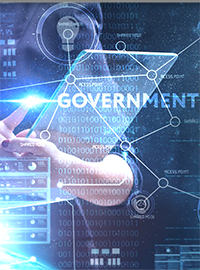| “Net Neutrality” Is Bidenomics for the Internet |
 |
|
By Timothy H. Lee
Thursday, October 19 2023 |
Bidenomics continues to punish working Americans, sow uncertainty and imperil the U.S. economy. That’s the leading reason why Joe Biden himself remains deeply unpopular, and his reelection prospects grow increasingly dubious. According to the federal government’s own data, the Bidenomics agenda of heavy-handed regulation and needless partisan activism have increased inflation over 17.1% since January 2021. That means a typical American family now pays $1,261 per month more, or $15,133 annually, for the exact same basket of goods and services compared to the day that Biden entered the White House. In turn, due to interest rate increases to battle higher inflation, home ownership affordability has declined 35.2% since January 2021, and credit card debt is up 35.5%. Inexplicably, however, his administration now seeks to expand that same Bidenomics agenda to internet service via so-called “Net Neutrality.” Just as Bidenomics expands government intervention into the economy at painful cost to Americans, the regulatory vehicle to impose Net Neutrality would expand government intervention and regulation of the internet. In turn, that would threaten innovation, quality, competition and customer satisfaction. The worst part? We’ve already experienced Title II, Net Neutrality in action at the conclusion of the Obama Administration. Specifically, we witnessed both the objectively negative consequences of its implementation, as well as the dramatic improvement that followed its subsequent repeal. After two decades of a deliberate federal policy of “light touch” regulation of internet service across both Democratic and Republican administrations, the radicalized Federal Communications Commission (FCC) under the Obama Administration began regulating the internet as a “public utility.” As a direct consequence of that heavy-handed bureaucratic intrusion, private broadband investment actually fell for the first time in history outside of an economic recession. Investment declined by $5.6 billion it the first year of Net Neutrality, and 20% overall. When the FCC under Chairman Ajit Pai repealed Net Neutrality at the beginning of the Trump Administration, the positive consequences were just as clear and instant. As fellow FCC Commissioner Brendan Carr sharply summarized this week on the eve of the Biden Administration’s effort to revive Net Neutrality regulation, progress arrived in the form of internet speeds, lower prices, more competition and narrowing of the “digital divide”: The entire debate over whether Title II regulations are necessary or justified was settled years ago. Indeed, when my FCC colleagues and I voted in 2017 to overturn the Obama Administration’s failed, two-year experiment with Title II, activists and politicians alike guaranteed the American public that the internet would quite literally break without it. They predicted that prices for broadband would spike, that you would be charged for each website you wanted to visit, and that the internet itself would slow down. Did any of those predictions come to pass? Of course not. Since the FCC’s 2017 decision to return the internet to the same successful and bipartisan regulatory framework under which it thrived for decades, broadband speeds in the U.S. have increased, prices are down, competition has intensified, and record-breaking new broadband builds have brought millions of Americans across the digital divide. Importantly, U.S. consumer satisfaction with internet service also jumped in the aftermath of Net Neutrality’s repeal. Between 2019 and 2023, satisfaction with internet speed increased from 76% to 85%, satisfaction with signal strength and range jumped from 76% to 84%, security satisfaction went from 81% to 88% and reliability satisfaction increased from 78% to 85%. Meanwhile, European internet service struggled during the Covid pandemic as a result of their Net Neutrality-like regulatory approach, whereas U.S. broadband speeds actually increased 91% in 2020 despite heavier use as workers and students migrated to the internet. The takeaway is obvious: A light-touch regulatory approach results in superior internet service and investment, whereas Net Neutrality regulation discourages investment and undermines service. Net Neutrality and Bidenomics thus share a common theme. Just as heavy-handed government intervention into the broader economy hinders economic efficiency and punishes consumers, heavy-handed bureaucratic intervention into internet service undermines investment, innovation and performance. The sooner that political leaders and activists abandon both Bidenomics and Net Neutrality, the better off American consumers and our economy will be. |
Related Articles : |
























